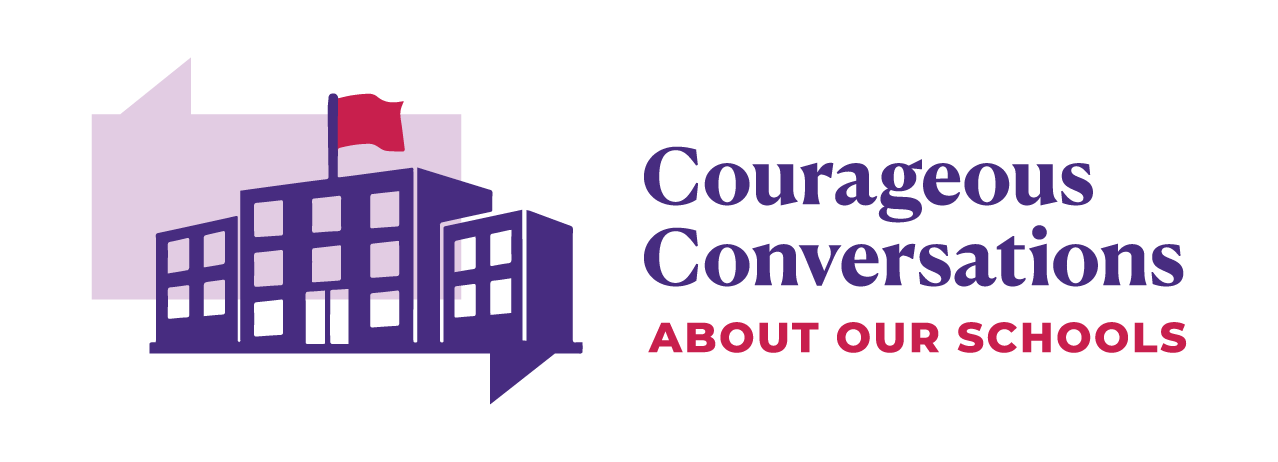Can Educators Prevent Racism in Schools? Diverse Perspectives, Lively Conversation (Ep. 17)
Listen & Subscribe
Choose your preferred player:
Episode Notes
Racist acts on school campuses are rising fast. Incidents of hate crimes and physical attacks with a weapon nearly doubled between the 2015-16 and 2017-18 school years. In the 2017-18 school year, schools reported nearly 6,000 hate crimes, according to the US Government Accountability Office. These are criminal acts, not what some people refer to as racial micro-aggressions, which by many accounts, occur with great regularity in some schools.
In this episode, a politically diverse group of guests discuss two provocative questions: 1) What can educators do to prevent racism? and 2) What should they do when it happens? Controversy arises because they touch on hot-button issues like Critical Race Theory (i.e., teaching about systemic racism, which has been banned in many states) and Diversity, Equity, and Inclusion (DEI) programs that have come under fire recently because, according to some, they promote racism rather than reduce it.
A conservative parent rights advocate, a high school student committed to educational equity, a progressive university educator, and the leader of young Republicans in Texas share their own experiences with racism before taking up the controversial questions about how to prevent and respond to it.
Featured Guests:
Christopher F. Kulesza
Scholar in Child Health Policy at Rice University, Executive Director of the Texas Young Republicans Federations
Christopher F. Kulesza, Ph.D., is a scholar for the Child Health Policy Program, where he carries out research in child and community health policy. His research investigates the health needs of K-12 students, with the goal of expanding access to health and social services. Chris teaches undergraduate and graduate seminars in public policy and American government at Rice University, Purdue University, Indiana University-Purdue University Indianapolis, and Pennsylvania State University. He is also serving in his fourth term as Executive Director of the Texas Young Republicans Federation.
Kenann McKenzie
Dr. McKenzie is the Founder of Aspiring Spirit, LLC which includes the well-known podcast.
Her background and expertise includes civic engagement research & practice, organizational consulting, PreK-12 schools and higher education professional development on subjects such as educational practices, policy, administration, and leadership. She has authored papers and peer-reviewed publications. Dr. McKenzie also is noted as the inaugural Director of the Generous Listening and Dialogue Center, Tufts University.
In 2022, she was recognized with the Heroine Award by the Commonwealth of Massachusetts’ Commission on the Status.
Laurie Gaddis Barrett
Laurie is passionate about fighting for parental rights and the protection of children.
You can follow her @LaurieinRI and she's also a member of No Left Turn In Education.
Yordanos Lema
Yordanos Lema is a junior in high school and is passionate about educational equity. She is currently involved in Bezos Scholar Program and Citizens University Youth Collaboratory.
Related Readings:
Camilla Mutoni Griffiths & Nicky Sullivan, August 19, 2022. “In Schools, Honest Talk about Racism Can Reduce Discrimination,” Scientific American.
Nov 24, 2021. “K-12 Education: Students' Experiences with Bullying, Hate Speech, Hate Crimes, and Victimization in Schools,” Government Accountability Office.
Darius O. Johnson, Briana Markoff, and Dorinda J. Carter Andrews, March 27, 2023. “Resisting racism in school,” Kappan.
Kristen Rogers, November 8, 2021. “Discrimination of any kind can lead to much higher risk of mental and behavioral issues for young people, study finds,” CNN.
Meltem Odabas & Carolina Aragao, April 4, 2023. “School District Mission Statements Highlight a Partisan Divide Over Diversity, Equity and Inclusion in K-12 Education,” Pew Research Center.
About the Show:
Courageous Conversations About Our Schools is a podcast that brings people together for respectful conversations about today’s most contentious issues affecting our schools.
Host, Ken Futernick
Courageous Conversations About Our Schools is hosted by Ken Futernick. Ken also hosts Teacher Stories, a podcast about the profound impact so many teachers have on their students and communities. Teacher Stories produced a special series of episodes on the question, What can schools do to help save our democracy?
Ken is an experienced moderator, a teacher educator, and a long-time advocate for collaboration and civil dialogue.
He is the author of the book, The Courage to Collaborate - the Case for Labor-Management Collaboration in Education.
Please feel free to send comments and questions to ken@schoolconversations.org.













